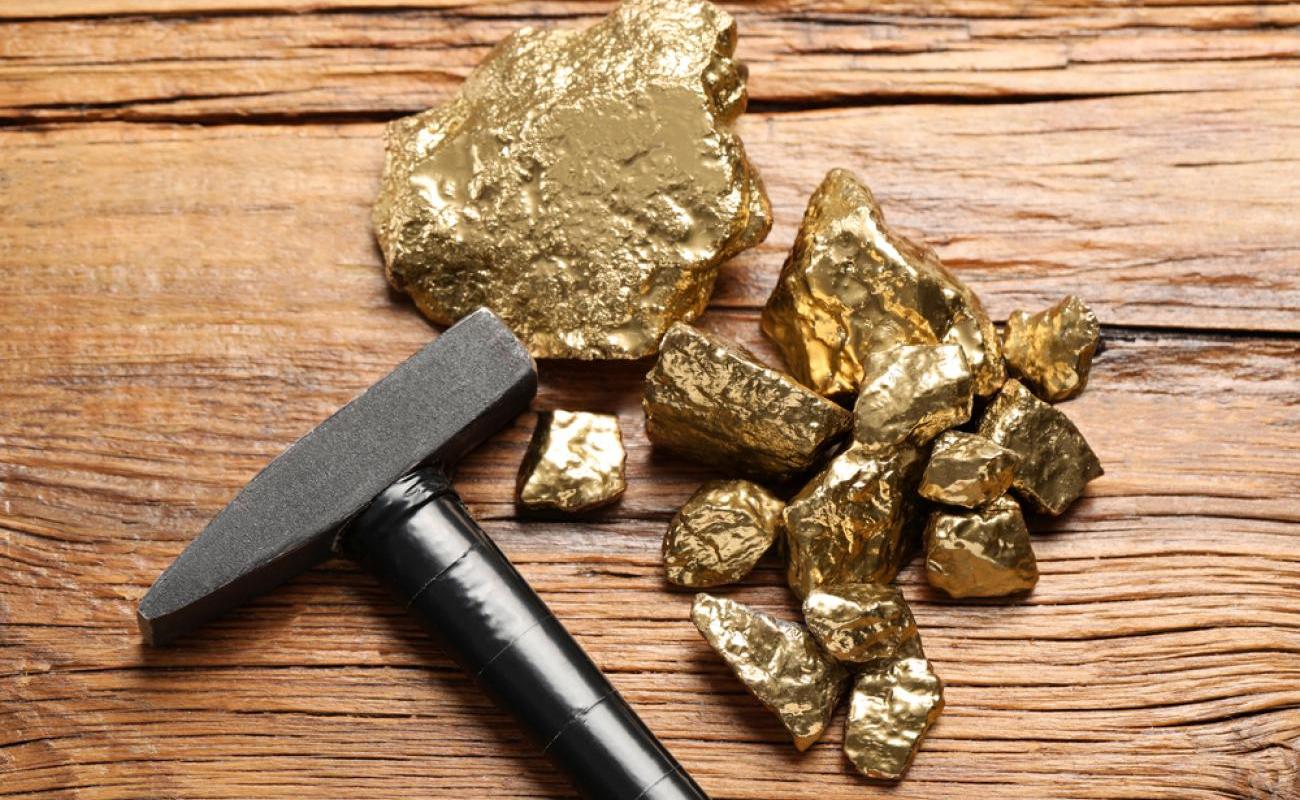Blood Gold: How Kremlin mercenaries loot Africa to wage war in Ukraine

Seizing African gold mines and building smuggling networks, the Kremlin-backed Wagner Group has generated over $2.5 billion to fund Russia’s war in Ukraine. But there is a way to close the tap on Wagner’s Africa blood gold pipelines.
Founded in 2014 to aid pro-Russian forces in Ukrainian Donbas, the Kremlin-backed Wagner Group has grown into a global network advancing Russian interests while generating revenue to sustain Russia’s war effort in Ukraine. A key focus is illicit African gold.
The Blood Gold Report, made by the international group of independent analysts, claims that the Kremlin has obtained over $2.5 billion in gold from Africa since Russia’s 2022 invasion of Ukraine. Wagner secures control of gold mines and refineries in the Central African Republic (CAR), Sudan, and Mali by propping up regimes and terrorizing civilians.
In CAR, Wagner obtained the country’s largest Ndassima gold mine in exchange for backing President Touadera’s authoritarian rule. Through control of a major gold refinery in Sudan, Wagner has become the dominant buyer of unprocessed Sudanese gold and a major smuggler of processed gold. In Mali, Wagner’s $10.8 million monthly payment from the junta depends on Western mining companies that provide over 50% of state revenue.
Exploiting gold’s meltability, Wagner infiltrates unethical sources into legal supply chains via refineries in Russia and the UAE’s sanction-free system. This blood gold fuels Russia’s war machine with up to $114 million monthly.
With the help of security expert Omar Ashour of the Doha Institute, Euromaidan Press analyzed the key findings of the Blood Gold Report, closely tracking Wagner Group’s gold exploitation in Africa and exposing illicit financing of Russia’s brutal war in Ukraine. Experts believe there are ways to close off these illegal money channels.
The CAR model: Wagner Group’s $2.8 billion mine
Wagner’s primary vehicle for managing its blood gold operations in CAR is Midas Resources, established in November 2019. Midas is steered by Wagner operative Dmitry Sytiy, who is personally sanctioned by the US and EU for human rights abuses.
Midas Resources has preferential mining access to CAR’s Ndassima gold mine, the country’s only industrial-scale mine. Canadian firm Axmin had exclusive rights but was forced out in 2013 and is now pursuing arbitration against CAR’s government.
Satellite imagery reveals Midas Resources is expanding production at Ndassima. The concession covers 12 unexploited locations in a 700 sq km radius.
Per the Blood Gold Report, Wagner Group’s operations there yield up to $290 million in gold annually. According to the CAR’s Ministry of Mines, the estimated gross value of gold deposits at the site is $2.8 billion. Wagner mercenaries ruthlessly oversee Ndassima, violently suppressing miner revolts.
A web of Wagner front companies also hold interests in the country. One example is the gold and diamond extraction company Lobaye Invest, whose managing director, Yevgeny Khodotov, is also sanctioned.
St. Petersburg-based M-Finance is pivotal in linking Wagner Group’s operations in CAR to global logistics and financial networks. M-Finance exports equipment for Wagner’s African enterprises from Russia to Africa. Initially headed by Valeriy Zakharov until his 2021 removal due to EU sanctions, M-Finance’s responsibilities were divided among Wagner operatives Vitalii Perfilev, leading Wagner’s CAR mission, Dmitry Sytii, and Alexandr Ivanovis, who directs Wagner spying and sabotage missions on behalf of the Touadera regime.
Diamville SAU, another Wagner-linked company, participated in a gold-selling scheme converting CAR-origin gold into US dollars until facing US sanctions in 2023. After that, participants in the scheme planned to move their operations onto a cash-only basis.
Under heightened scrutiny and sanctions, Wagner resorts to complex means to export resources from CAR. A favored tactic involves transshipping gold via third-party countries, such as the route between CAR and Cameroon. Overland shipment to the Congo market in Douala port facilitates cash-only transfers managed by Wagner-affiliated International Global Logistics.
CAR’s border with Sudan is an alternate smuggling route, allowing Wagner Group to carry items to and from “friendly” countries.
When such paths fail, Wagner uses unconventional methods, including registering private jets instead of cargo planes to evade controls. Additionally, the group seeks collaboration with criminal networks and militia groups in CAR to smuggle goods on its behalf.
The Sudan model: a “gold town” for Wagner Group
Sudan’s gold sector is rife with factionalism among political elites, military factions, and financial players. The state sees little revenue as up to 90% of gold production is smuggled out illegally. Artisanal mining – done by hand using basic tools – generates 85% of production.
Wagner Group’s extensive Sudan interests are managed by M-Invest, led by Andrei Mandel and Mikhail Potepkin.
M-Invest’s financial agreement with Sudanese intelligence firm Aswar involves a $200,000 “goodwill fee,” $100,000 monthly covering Aswar staff salaries and taxes, plus $500 per Wagner individual entering Sudan. In exchange, Aswar provides the Russians access to Sudan and its Ministry of Defense weaponry.
M-Invest’s subsidiary, Meroe Gold, served as Wagner’s primary front until 2021, exploiting regulatory exemptions granted under al-Bashir’s regime. Meroe Gold dominated gold processing, notably through a plant in “gold town” al-Ibaidiya. This area, abundant with artisanal miners and local mining companies, also hosted a major processing facility known locally as “the Russian company,” which was synonymous with Meroe Gold.
By controlling the al-Ibaidiya plant, Meroe, and consequently Wagner Group, became major players in Sudan’s gold sector. Facing 2020 US sanctions, Meroe Gold was simply replaced by Al Sawlaj for Mining Ltd.
A 2018 letter revealed M-Invest arrangements with Aswar to utilize military flight codes. In 2022, a Russian plane was found smuggling a ton of gold hidden among cookie boxes, one of at least 16 such flights between Khartoum and Russia’s Syrian airbase. Wagner also transports gold overland to CAR through a shared border.
